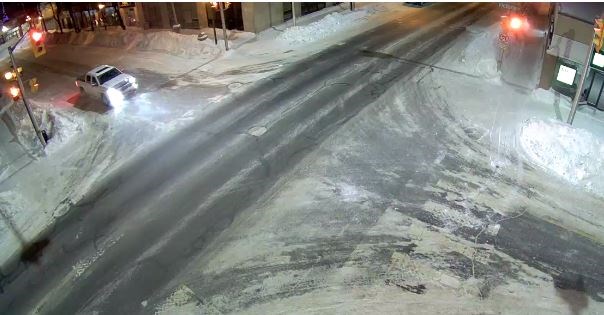THUNDER BAY — The city is receiving additional money from the provincial government to support the expansion of its eye-on-the-street video surveillance program.
The Ministry of the Solicitor General recently announced a new $200,000 commitment under the Ontario Closed Circuit Television Grant Program.
Municipalities are able to use money from the program to replace outdated equipment, expand or enhance current technology, and install new CCTV cameras in areas where illegal drug activity, gun and gang violence or human trafficking may be occurring.
A spokesperson for the Thunder Bay Police Service said Wednesday that decisions still have to be made on the precise number of new cameras and where they will be installed.
"For now, we are happy to be receiving this funding so that we can continue to expand this important program," he told TBnewswatch.
The grant program covers 50 per cent of project costs to a maximum of $200,000 per project.
Eye-on-the-street was launched in Thunder Bay in 2005, and currently has cameras at 21 locations.
In 2021, city council approved camera upgrades at 12 of 13 existing locations, and adding cameras at eight new sites, funded by a $200,000 grant from the province and matching funds from the city and the police service totalling $400,000.
At that time, more than 40 potential locations were identified as "high value for continuous recording" in conjunction with the police service's criminal investigations branch and the city's crime prevention council.
These included public spaces in areas outside the urban cores, such as two sections of the Neebing-McIntyre Floodway and adjacent trails where public safety has been a concern.
Outdated cameras and control systems were replaced to leverage advanced imaging and analytics capabilities in the support of investigations into gang-related activities and other crimes.
An advisory committee was established to provide an additional layer of oversight for the program, and to ensure it meets all privacy regulations.
Last year, Thunder Bay Police also acquired new software that helps investigators more easily detect and extract images of individuals and objects of interest from video recordings.
Results of a public survey released in February of this year showed a majority was in favour of using the artificial intelligence technology, provided policies are implemented for the protection of privacy.
